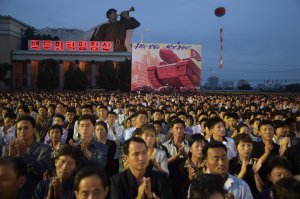The United Nations Security Council unanimously adopted a US-drafted resolution to impose new sanctions on North Korea on Monday — a move that comes just one week after the rogue nation carried out its sixth and largest nuclear test.

(Credit: Kim Won-Jin/AFP/Getty Images)
The resolution is designed to accomplish six major goals: cap North Korea’s oil imports, ban textile exports, end additional overseas laborer contracts, suppress smuggling efforts, stop joint ventures with other nations and sanction designated North Korean government entities, according to a US official familiar with negotiations.
On Monday, the US circulated a draft resolution that called for a full ban on exports of oil to North Korea and an asset freeze on leader Kim Jong Un, the Worker’s Party and the government of North Korea.
But later in the day, the US put forward another draft that removed the full oil embargo, asset freeze, travel ban for Kim and softened the language on foreign workers and other issues.
Russia and China both have veto power as permanent members of the Security Council and had expressed skepticism over the initial sanctions proposal.
The Reuters news agency reported Monday that the sanctions had been softened to appease China and Russia, citing diplomats.
Ahead of the vote, North Korea warned the United States that it would pay a “due price” if harsh sanctions were passed by the Security Council.
North Korea’s Foreign Ministry said in a statement published on state media that if the US “does rig up the illegal and unlawful ‘resolution,'” it would respond in kind.
“The forthcoming measures to be taken by the DPRK will cause the US the greatest pain and suffering it had ever gone through in its entire history.”















